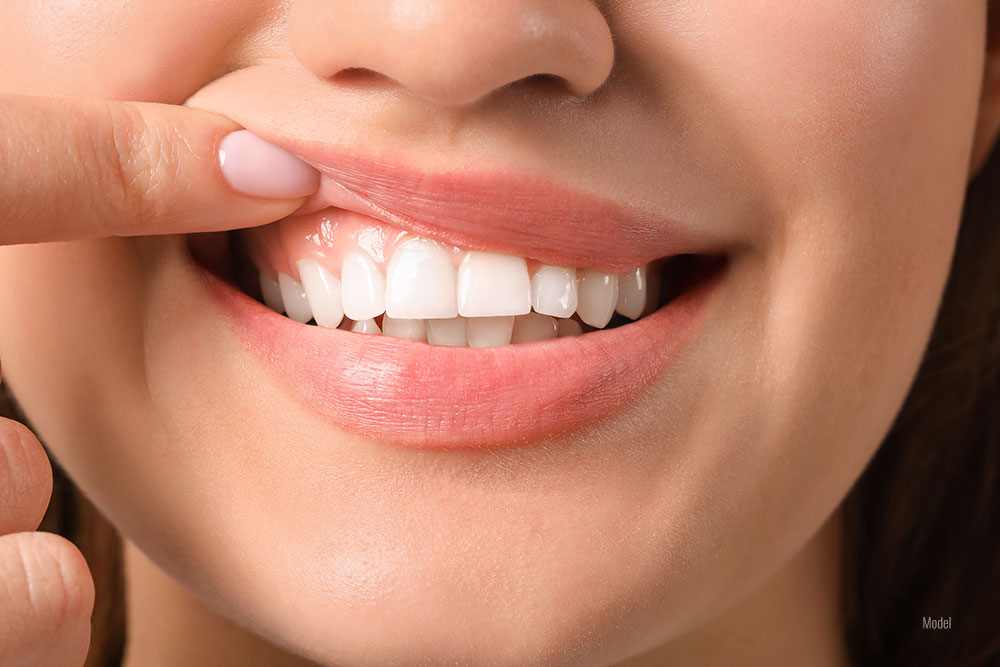Can Gingivitis Be Reversed or Do You Need Gum Surgery?

Gingivitis is a common form of periodontal disease. Due to it being an early stage of gum disease, gingivitis can be reversed with early detection, proper care, and treatment. Here, we discuss gingivitis and its effect on the gums, as well as treatment options.
3 Min Read:
Oral Health
Your smile is often a defining characteristic of your face and personality. It projects your confidence to the world. Taking care of your teeth is crucial in maintaining a beautiful smile and ensuring good oral health. However, it isn’t always easy to keep your teeth perfectly pristine. Some people are more susceptible to oral health issues such as periodontal disease due to genetics or conditions they have. Others may develop periodontal disease due to habits such as smoking or brushing their teeth poorly.
What Is Gingivitis?
Gingivitis is a periodontal disease in its earliest and mildest form. Symptoms of gingivitis include swollen gums, the color of the gums darkening, tender gums, bad breath, and bleeding while brushing or flossing your teeth. Gingivitis is very common and, if caught early, can be reversed with proper care and treatment.
Most often, gingivitis is a result of poor oral hygiene. Neglecting to brush and floss your teeth thoroughly leads to plaque building up. If the plaque buildup is left on the teeth, it will harden and turn into tartar, making it impossible to remove on your own and necessitating a professional dental cleaning. When plaque and tartar stay on the teeth long, they irritate the gums, causing swelling and bleeding.
If you are experiencing symptoms of gingivitis, it is best to see a dentist as soon as possible, as early detection is key to treating gingivitis.
Can Gingivitis Heal on Its Own?
While gingivitis can often be reversed, it will not simply go away on its own. In fact, if you leave gingivitis untreated, it can turn into a more serious form of periodontal disease known as periodontitis. Gingivitis alone is quite mild; however, periodontitis affects surrounding tissue and bone, which can lead to tooth loss.
How to Treat Gingivitis
Proper Oral Maintenance
Practicing good oral hygiene is important for everyone; however, it is especially important for individuals who have gingivitis. Thoroughly brushing and flossing your teeth twice a day is recommended to keep your teeth clean and in good condition. Remember to brush the area the gum tissue touches the teeth as well.
Many dentists recommend electronic toothbrushes, as they are very thorough but gentle on the teeth. Fluoride toothpaste and mouthwash can help minimize tooth decay if used with proper brushing and flossing.
Professional Dental Cleaning
Getting a professional dental cleaning twice a year is also an essential aspect of maintaining good oral hygiene. The dentist can remove plaque and tartar during a cleaning.
For gingivitis and more serious cases of periodontal disease, a deep cleaning at the dentist may be required. Periodontal maintenance typically occurs every three months instead of every six months, as regular cleanings require.
Gum Surgery
In more severe cases of gingivitis, pocket reduction surgery and/or gum grafting surgery may be needed to correct receding gum tissue. Gum grafting involves taking a piece of healthy tissue from somewhere else in the mouth, which is then used to cover the exposed tooth root.
Want to Know More About Gingivitis and Gum Surgery in Los Angeles, CA?
To learn more about gingivitis and your gum surgery options in Los Angeles, CA, call our office at (310) 275-1090 or fill out our online contact form today.
